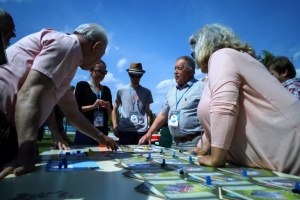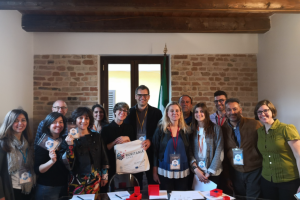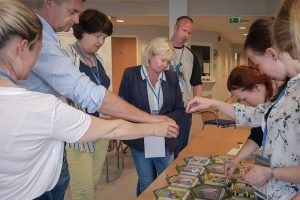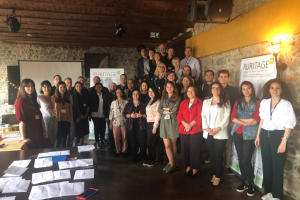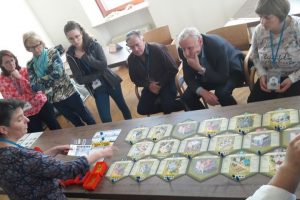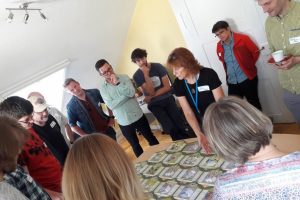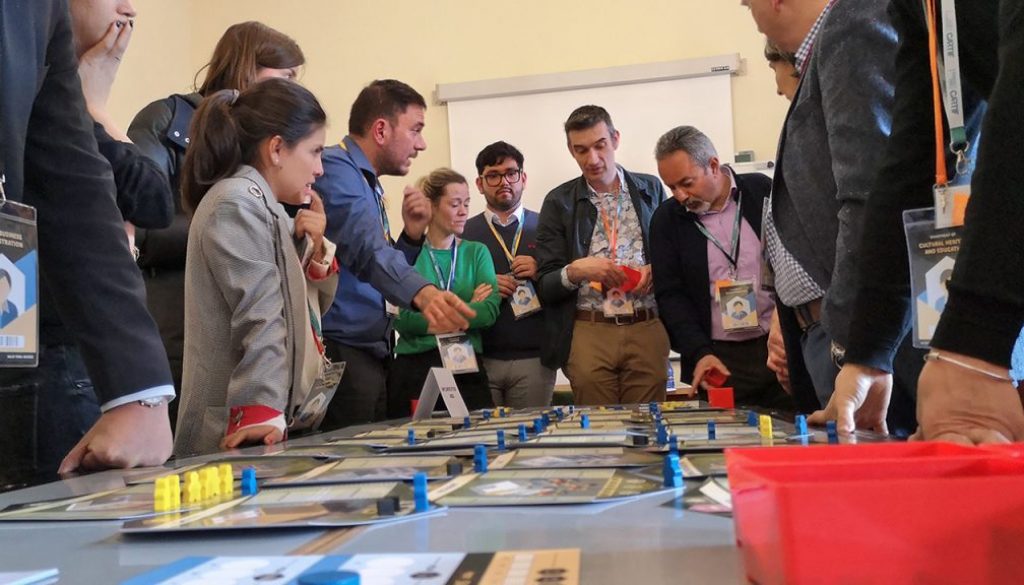
Ruritania Game was designed by the Centre for System Solutions (CRS) in cooperation with United Nations Educational, Scientific and Cultural Organization (UNESCO), Replicators (Rs), and the University of Bologna (UNIBO) as part of the EU Horizon 2020 project RURITAGE.
The game was co-developed and further used by project partners across Europe to engage local stakeholders from 4 main areas: (1) Policy, (2) Research, (3) Public/User, and (4) Industry/Services/Investors in discussions about how to sustainably approach revitalization and address other local challenges. According to these, a list of the most important groups of stakeholders was created:
- Regional and local governing bodies and institutions
- Universities and research institutes
- Schools and other education and training centers
- Civil society organizations
- Key service providers in rural areas
- Peculiar representatives of SIA (Systemic Innovation Areas) relevant for Role Models and Replicators
- Public and private investors
- Local residents
Playing the Ruritania Game helped “Replicators” and their stakeholders find common ground and develop a joint incentive to act, thus accelerating local actions to encourage sustainable development. (Replicators are rural communities searching for innovative solutions, using local heritage potential as a catalyst for economic competitiveness and/or sustainable and inclusive growth.) While exploring solutions in a simplified reality, stakeholders were able to build connections and get motivated to take action towards a common cause.
- Slovenia
- Italy
- Norway
- Turkey
- Austria
- Germany
During the first 18 months of the project, the CRS team created 7 versions of the Ruritania Game. One version in English that was tested during the Training Workshop (Valladolid, Spain, March 2019) purposes and 6 tailored variants, one for each SIA (Systemic Innovation Areas), in the national languages of each Replicator. While working on the game, we focused on rural regeneration via an innovative approach to cultural and natural heritage. The process relied on an intense, iterative, and productive knowledge exchange among game developers, UNIBO experts, and the Replicators’ representatives.
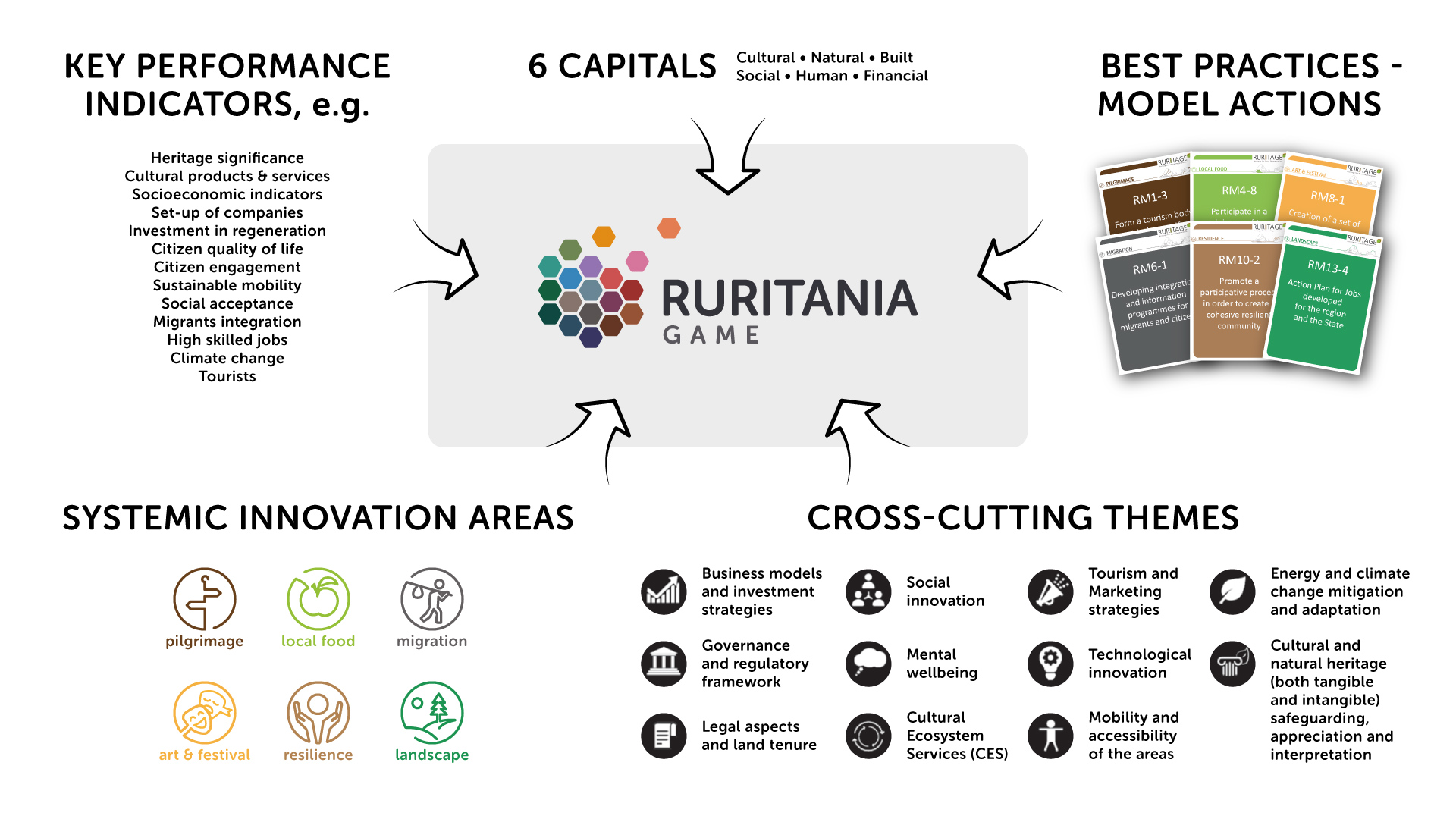
The delivery of the social simulation required meeting two crucial design goals. The first demanded translating the theoretical framework of the RURITAGE project into the general concept of the simulation. The second involved creating distinct versions of the design for each Replicator. It meant including unique features of the region and the specific issues faced by the local communities.
Game designers and project partners assumed from the very beginning that the tool should be used wherever there is a need to involve various groups of stakeholders to cooperate for the development of a given community or rural area. As the evaluation proved, the tool fulfills this role.
Ruritania Game is a tool that can be used by moderators, leaders, and animators of local communities. A workshop based on Ruritania Game can be an occasion to bring together stakeholders from the community and immerse them in a simplified reality that will help them build connections with each other and understand the real-world complexity of achieving rural regeneration, foster creativity, and support consensus building, in effect leading to the increased commitment to action. The game helps participants understand the tradeoffs and synergies in achieving their goals. The Ruritania Game workshop may be the first joint step to further actions for the sustainable development of a local rural area.
